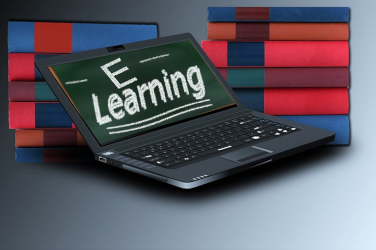Courses Suited to Online Learning

Education via the internet provides exciting opportunities for both educators and learners. The internet and World Wide Web have made the computer a dynamic and credible force in distance education, providing a new and interactive means of overcoming time and distance to reach learners. Education is now completely accessible, regardless of your age and geographical location. Points or previous educational attainment is not necessary for entry to the majority of courses on offer.
Whilst there is much qualitative and quantitative research that indicates the benefits and success rates in e-learning. Recent research concluded that students’ learning styles were statistically significant for knowledge performance. Indicators do show how e-learning is more suitable for those with a certain learning style. Yes, some of us learn better in the traditional ‘chalk and talk’ setting, whilst there are others who can learn independently and don’t necessarily need the interaction and environment that the typical classroom provides. We call these students ‘thinkers and doers’. Learning styles can have a large influence on learning outcomes. It doesn’t necessarily mean you won’t be able to cope with an e-learning course if you are a ‘traditionalist’. However, you might have to put in that little bit of extra work, to stay focused, interested and motivated. Regardless of the findings – testing yourself is the key to ensuring that new information goes into the long-term memory!
There is another issue when it comes to e-learning courses and the individual learner. There are some courses that are more suited to e-learning compared to others on offer. If a course heavily relies on demonstration or practical work – then you might want to consider the practicalities of doing the course on-line. This should not prove vital in the majority of courses as nearly all e-learning courses are supported with visual components for the course; videos, animations, on-line tutor support etc.
There are a lot of employers and managers who value e-learning and what it can offer their workforce. For example, many directors of corporate training believe that web-based learning is the future method for their training programmes. They believe that if you want to improve the skills, knowledge and performance of your employees, e-learning offers an excellent opportunity for consistent and reusable learning resources for employees. E-learning can have a key role to play in areas such as management training, especially for those who are already experienced in their role. Those with confidence in their abilities are able to learn best when they can progress at their own pace. Click here to view some online management training courses on Findacourse.ie.
There is no doubt that e-learning plays a huge part in providing up-skilling when there is a skills deficiency in the workforce or if you want to equip yourself with certain knowledge/skills if you are going for a new position and you lack one certain skill. An example of this is: if you are going for a teaching position with a requirement to have knowledge of challenging behaviour – Portobello Institute have a range of such courses (click here to view examples) you can do an e-learning course with Portobello Institute via their eportobello.com department of their Institute.
With legislation constantly changing in areas like health & safety and in relation to childcare; e-learning allows you to complete relevant modules as required and as they are up-dated. Currently in Ireland the minimum qualification required to work in childcare is QQI Level 5. If you are not in a position to commit to a full-time course – an e-learning course might be your only option to give you essential knowledge and documentation to gain employment in this area. If you are an existing child-care worker but you do not have the official accreditation, choosing to do an on-line course is ideal for you, as you are already aware of specific terminology and practices that will make up the course content.
The QQI accredited childcare courses from CMIT are excellent example of courses translated into credible e-learning qualifications. These courses are ideal for all people who currently work within childcare or wish to do so. Students have 24×7 access to CMIT eLearning for the duration of the course. This includes a comprehensive Course Manual, Video, Quizzes and personalised Tutor Support. Click here to view other online distance learning Childcare courses on Findacourse.ie.
ICT and computers is another area suitable to e-learning. The most suitable, are those that are quite basic to teach and are very structured to ensure learning is possible. There are also more advanced courses suitable for those with knowledge of IT systems but be aware of the level you are at before attempting an advanced IT course online. These courses are ideal for those competent in IT, who would not have a problem coping with extensive technical language specific to this area. Click here to view some online computer course listings.
Hair and Beauty is another category of training suited to online learning. There are many skills and new techniques that can be displayed online via videos and images. These can be practiced at home and are especially suited to those starting out in the industry or looking to pursue a hobby in this area. Some of the online courses available include, beauty therapy, nail technician courses, fashion styling and hairdressing. Click here to view some examples of online hair and beauty courses.
Remember, an e-learning course can add power to your CV and open up a world of employment opportunities. It shows your current or future Prove employers that you have the commitment to study and to up-skill. It shows committed to developing your role. It allows you to meet and exceed the requirements for job vacancies and hopefully stand out from other job applicants.
The following link provides more information on e-learning courses and training providers – Distance Learning and Online Courses Ireland





